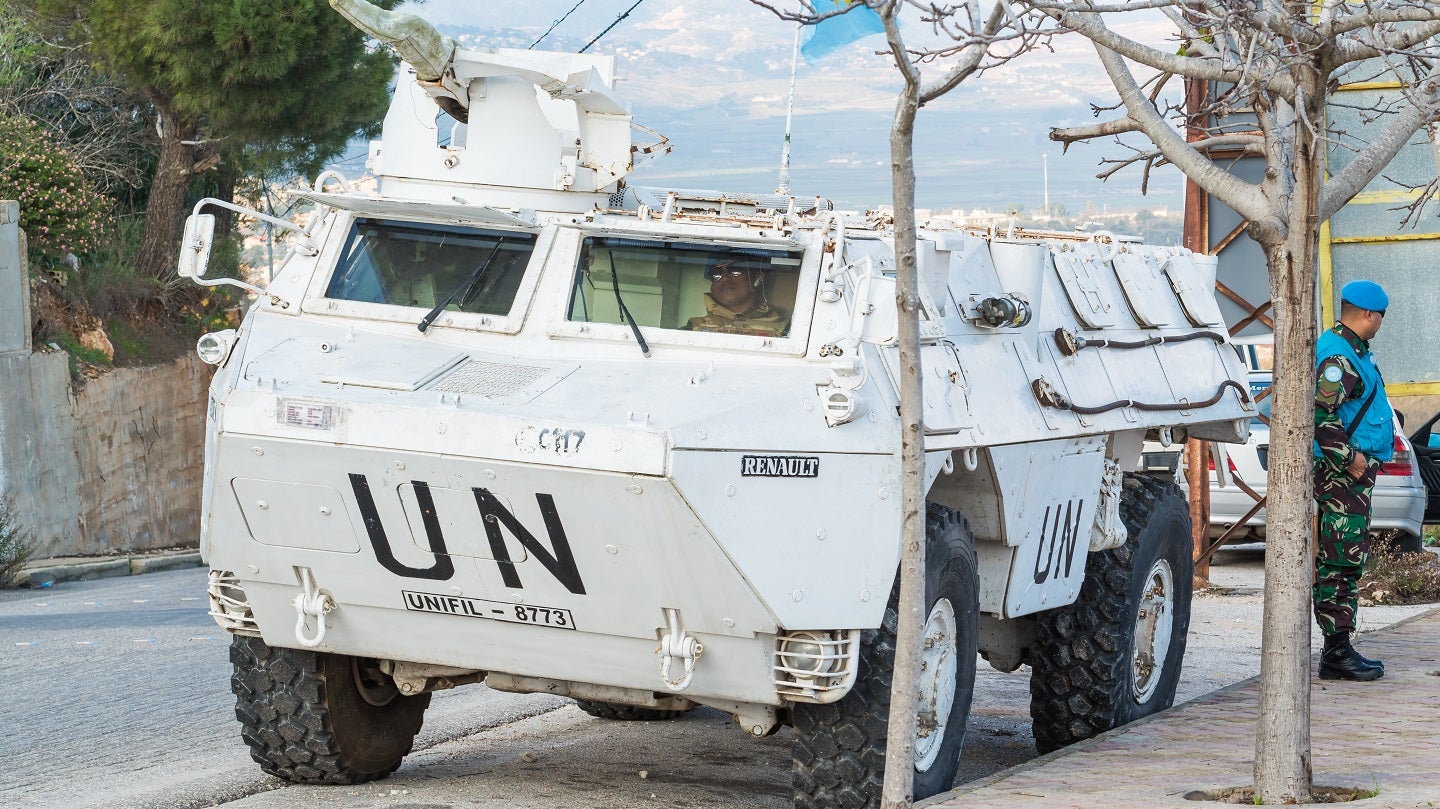
The UK has marked its status as a Troop Contributing Country to the United Nations interim force in Lebanon (UNIFIL) during a ceremony at the mission’s headquarters in Naqoura, bringing London’s participation on par with countries such as Zambia, Qatar, and Peru in providing a single military officer.
The event, which took place during a visit by the UK Defence Senior Advisor to the Middle East and North Africa (DSAME) Air Marshal Martin Sampson to Lebanon from 5-6 July, will see the UK represented by a female officer as the Integrated Outreach Operations Officer, according to a UK Government release.
During the event, the UK DSAME, accompanied by UK embassy Charge D’Affaires Camilla Nickless, and the Defence Attaché Lt Col Lee Saunders, met General Joseph Aoun, Chief of Defence for the Lebanese Armed Forces (LAF), Prime Minister Najib Mikati, and Foreign Affairs Minister Dr Abdallah Bou Habib.
The ceremony at Naqoura saw the raising of the UK flag, with the UK becoming the 49th troop contributing nation to UNIFILs now 10,101 peacekeepers.
According to official figures from UNIFIL, the largest contributing nations to the mission are Indonesia (1,230), Italy (1,111), and France (928). In addition, China contributes 418 personnel to the mission, among other significant contributions from Indo-Pacific nations, including Nepal (874), Malaysia (833), and the Republic of Korea (279).
However, the ceremonial induction of the UK as a Troop Contributing Country did nothing to stop the general unrest seen in Lebanon, with its complex web of political powers all vying for influence.
On 6 July, UNIFIL released a statement after its peacekeepers detected explosions near Al-Majidiya, with analysis suggesting that it was consistent with a possible rocket launch. The same day, peacekeepers reported shelling from Israel to the Kafr Shouba area in Lebanon.
Earlier in the year, on 7 April, the Israel Defense Forces had informed UNIFIL that it would “begin a response” to rocket attacks from the previous day, immediately after which, UNIFIL personnel heard “loud explosions” from the city of Tyre.
UNIFIL stated that having spoken to “both sides”, it had concluded that neither “want a war”, cautioning that the actions of the previous 24 hours were “dangerous and risk a serious escalation”.
Caught between a rock and a hard place: UNIFIL’s mandate
According to the UN, the UNIFIL mission was established in 1978 to confirm Israel’s withdrawal from Lebanon and assist the Lebanese Government in restoring authority over the country. The mandate has had to be adjusted twice, due to developments in 1982 and 2000.
Following the July-August 2006 crisis, which saw Israeli forces fighting sustained battles against Hezbollah, a Shia Islamist political movement that controls areas of Lebanon, the UN enhanced UNIFIL forces and expanded its mandate to include the monitoring of the cessation of hostilities and to accompany and support the Lebanese military in the south of the country.
However, the security of Lebanon continues to be a complex issue, with Hezbollah, backed by Iran and the Iranian Revolutionary Guard Corp, widely seen as a state-with-a-state, backed by its own military with tens of thousands of fighters and generally considered to be more capable than the Lebanese Armed Forces.
UNIFIL states that 17% of the 14,500 operational activities carried out per month are done in conjunction with the Lebanese military.
The UK recently confirmed the provision of Land Rover vehicle spares to Lebanon to aid its military as part of the country’s Conflict, Stability, and Security Fund programme.
According to GlobalData analysis, Lebanon’s 2022 defence expenditure was expected to value $1.87bn, registering a compound annual growth (CAGR) of -3.1% during 2018–22. The country was anticipated to record a negligible CAGR of 0.2% over the forecast period to value $1.89bn in 2027.



